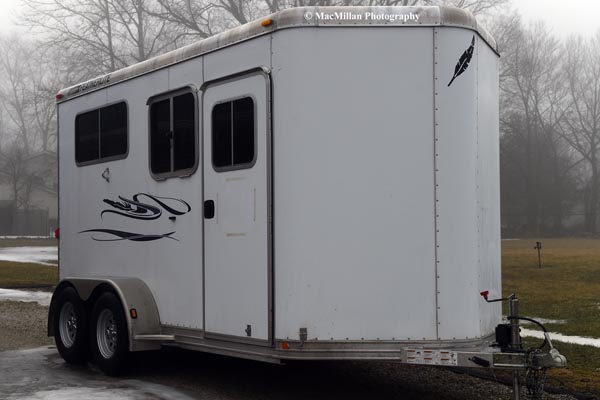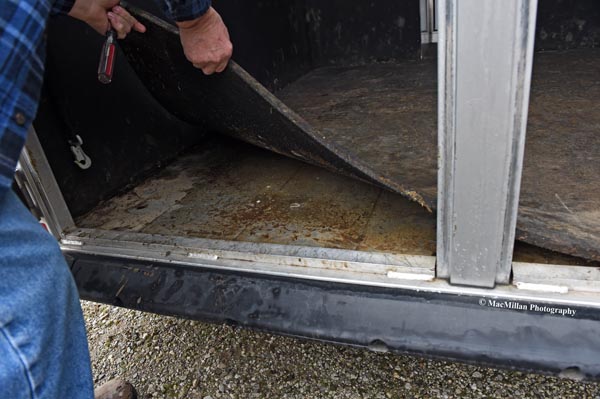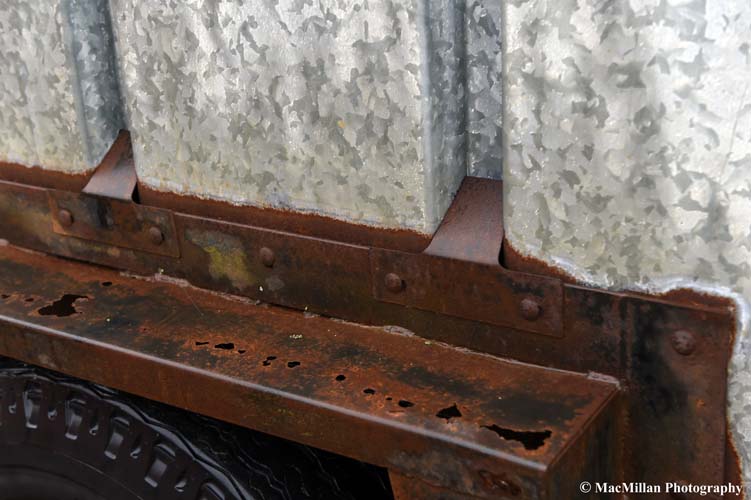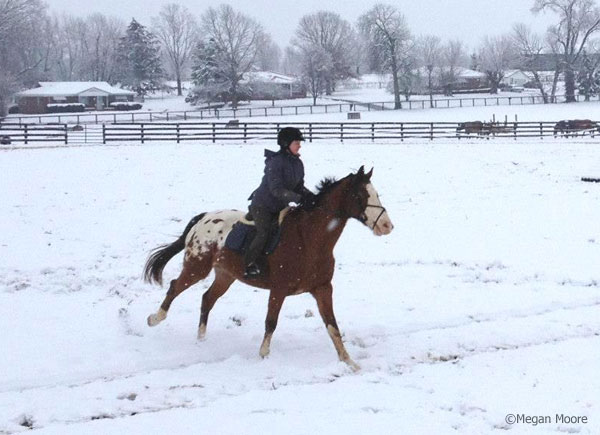It’s time to get your trailer ready for hauling horses! As the weather starts to warm up, set aside a day to clean and check your trailer before loading up your horse for show and trail riding season.

A typical two-horse bumper-pull trailer. Keeping your trailer clean and doing regular maintenance will prolong the life of your trailer and help prevent breakdowns and delays when you are on the road. Photo by Kim MacMillan
In the 30-plus years I’ve been trailering my own horses, I’ve learned that what can go wrong will go wrong when hauling horses. Whether it’s a flat tire in the dark along a rain-soaked interstate at rush hour, a horse that won’t load into a trailer because the interior lights aren’t functioning, or a trailer axle that has slipped to the side and the tire is smoking because it is rubbing against the side of the trailer (all these have happened to me over the years), disaster may be lurking around the corner.
This has proven to me that preventative maintenance is well worth the cost and effort considering the precious cargo being hauled. Here are the steps you need to take to be road-ready this season.
Spring Cleaning before Hauling Horses
Give your truck and trailer a good wash down with soap and water, including the undercarriage and wheel wells, to get off the road salt and grime build-up from the winter. Don’t forget the bed of your truck (including under the bed liner if it lifts up) and the interior of the trailer. This will help reduce rust and corrosion thus prolonging the life of your truck and trailer.

A few times a year, pull out the trailer floor mats and wash down and examine the floor of the trailer. Photo by Kim MacMillan
Bill Zahm, a trailer maintenance professional at Zahm’s Trailer Sales in Northeastern Indiana, strongly advises to pull out and wash the trailer floor mats a few times a year when you’re regularly hauling horses. Manure and urine are very destructive to wood and metal over time, so a thorough wash can prevent major damage. Spray off the top and bottom of the mats, too. Let the inside of the trailer and the mats dry well before replacing the mats so you don’t trap moisture in the floor.
“You do not have to pull the mats out after every haul,” Zahm says. “But [it is good] to clean out manure and rinse the inside of your trailer after every use. You’d be surprised how many people don’t do this, but it is really important to help keep your trailer in good shape.”
As you clean, check your truck and trailer for signs of wear and tear. According to Zahm, even aluminum and galvanized steel trailers can be damaged by road salt, grime, manure and urine. Aluminum oxidizes (this will look like tiny white dots on the metal) and eventually corrodes leaving pits in the aluminum. Steel will rust (another form of oxidation) quickly deteriorating the metal.
When your trailer is a combination of different metals you can have problems too. If two different types of metal come into contact with one another, it causes a chemical reaction (called galvanic corrosion or electrolysis) that quickly corrodes one of the metals and leaves a residue on the other metal. To guard against this, there should be a layer of heavy duty tape, or other protective coating, between the two types of metal anywhere they touch.

In this photo, galvanic corrosion (or electrolysis) occurs when two types of metal with two different electrical charges come into contact with one another. To avoid this, the manufacturer should put heavy duty tape, or some type of protective barrier, between the two types of metal. Photo by Kim MacMillan
Examine the trailer roof vents above the horses as well as the plastic bubble cover and corresponding crank handle on the roof vent in the ceiling of the tack compartment or living quarters in your trailer. Make sure that the vents are in good working order; the moving metal parts may require lubrication. Get a ladder and examine the plastic bubble vent cover – those get brittle with age and crack so that rain can leak into your tack compartment. I even had one of these come loose and blow away on a windy, rainy trip home from St. Louis. Trailer and RV dealerships usually have them in stock and can replace them for you.
Spring cleaning is a great time to wash and sanitize the items stored in your trailer too. Scrub and disinfect feed and water buckets, feed scoops, scoop shovels and muck buckets. It’s also a good idea to soak your hay nets using a chlorine bleach and water solution to kill bacteria and mold spores, then rinse and hang them to dry. Check your lead ropes and trailer ties – you rely on these to safely secure your horse, so if they are frayed or broken, either repair or replace them. And don’t forget to launder your horse’s protective leg and tail wraps – clean wraps will be less irritating to your horse’s skin and will attract fewer flies.
Look for Stowaway Pests
As you clean out your trailer look for things like wasp nests, spider webs, and mouse nests. If you are in the southern U.S., fire ants can decide to move into your trailer too. I’ve even heard of birds building nests in horse trailers in the spring.
If you live in fire ant country, find an effective insecticide or repellent for these disagreeable insects since they will bite humans and horses. The bites can develop into very nasty sores that last for months. My horse and I found out the hard way when we encountered the mean little beasties during our five weeks on the Florida circuit!
Clean out rodent and birds’ nests carefully since contact with mouse/rat feces and urine and bird droppings is linked to serious human health issues. A dust mask and gloves are your best friends for this chore.
In Part 2 of Road-Ready Tips for Hauling Horses, we’ll look at the trailer maintenance that needs to be performed at the beginning of each travel season.
In Part 3, you’ll find out how to prepare for emergencies when hauling horses and what you should do before every trip.





great tips